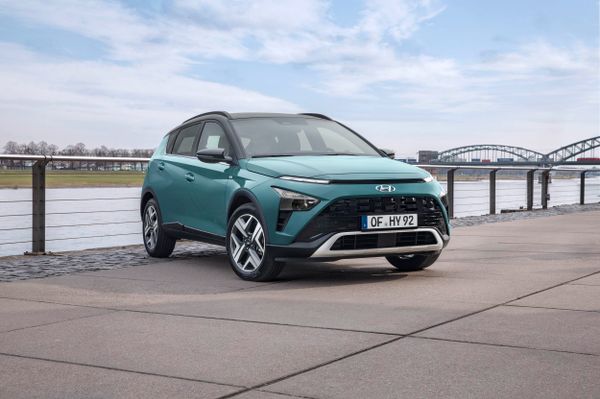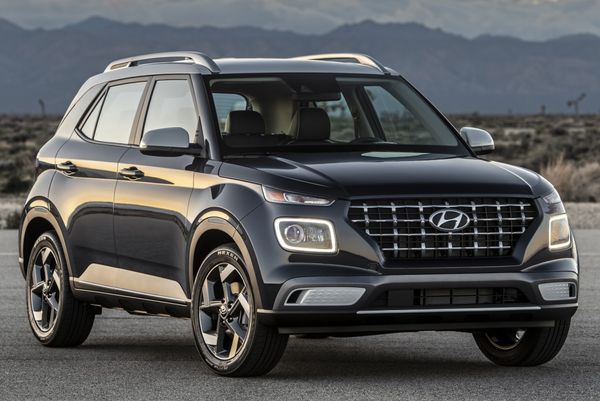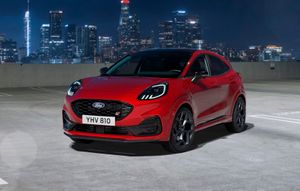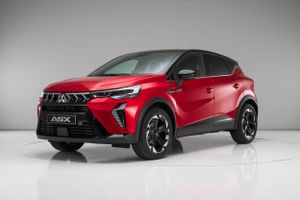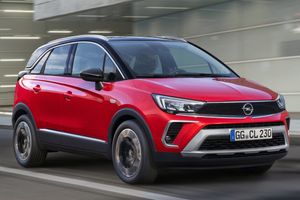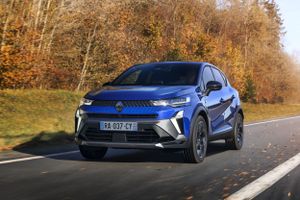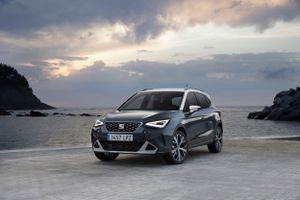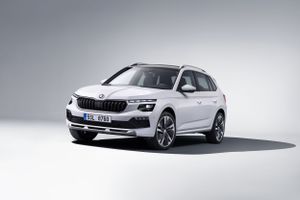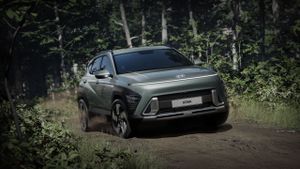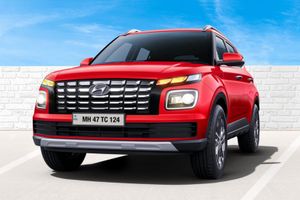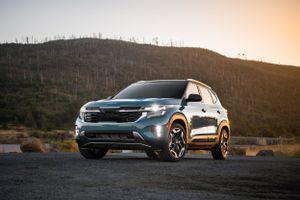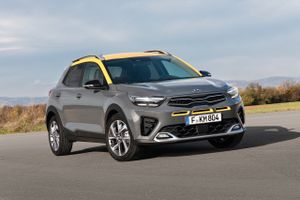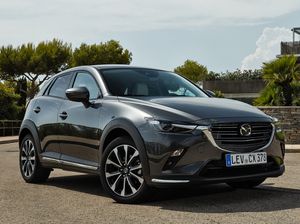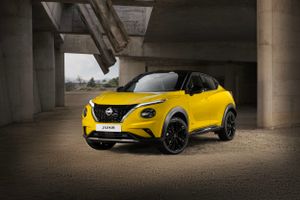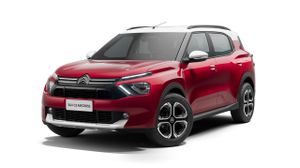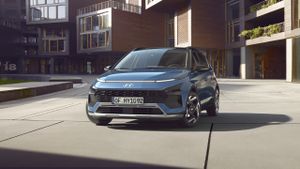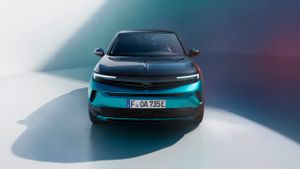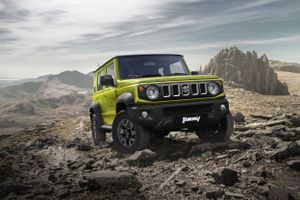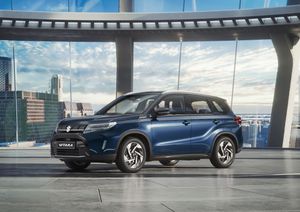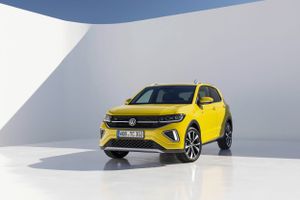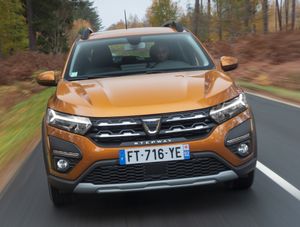Comparison of Hyundai Bayon and Hyundai Venue
Comparison of Hyundai Bayon and Hyundai Venue
Characteristics
Hyundai Bayon and Hyundai Venue
Transmission
Robotic
Variable
Number of gears
7
Type of drive
FWD
FWD
Top speed
180 km/h
186 km/h
Acceleration to 100
11.7 sec
11.2 sec
Fuel tank capacity
40 l
45 l
Curb weight
1 255 kg
1 219 kg
Max weight
1 660 kg
1 700 kg
Length
4 181 mm
4 040 mm
Width
1 775 mm
1 770 mm
Height
1 491 mm
1 592 mm
Wheelbase
2 581 mm
2 520 mm
Front track width
1 552 mm
1 555 mm
Rear track width
1 557 mm
1 565 mm
Trunk volume min
373 l
355 l
Trunk volume max
1 143 l
U-turn diameter
10.2 m
10.2 m
Wheel size
205/55 R17
185/65 R15
205/55 R17
205/55 R17
Mild Hybrid
MHEV48V
Fuel consumption city
7.3 l
Average consumption
5.5 l
5.1 l
ECO class
Euro 5
CO2 emissions
124 g/km
165 g/km
Engine type
Gasoline
Gasoline
Battery power
0.46 Kwh
Engine location
Front, transverse
Front, transverse
Engine power system
Direct injection (direct)
Distributed injection (multi-point)
Engine capacity
998 cm³
1591 cm³
Type of boost
Turbo
No
Cylinder arrangement
Inline
Inline
Number of cylinders
3
4
Valves per cylinder
4
4
Compression ratio
10.5
10.5
Bore and stroke
71 × 84 mm
77 × 85.4 mm
Maximum power
100 (73 ) 4500-6000
123 (90 ) 6300
Maximum torque N⋅m
175 1500–4000
157 4500
Front suspension
Independent, spring
Independent, spring
Rear suspension
Independent, spring
Semi-independent, springorts hélicoïdaux, sem
Front brakes
Ventilated disc
Ventilated disc
Rear brakes
Disс
Disс
Clearance
165
170
Trim version
Hyundai Bayon and Hyundai Venue
Driver's airbag
Passenger airbag
Side front airbags
Window airbags (curtains)
Tire pressure sensors
Driver drowsiness detection
Keyless central locking
Immobilizer
Rear-view camera
Isofix for the back row
Cruise control
Cruise control
Anti-lock braking system (ABS)
Electronic stability program (ESP)
Emergency brake assist (BAS, EBD, EBA)
Automatic slip regulation (ASR)
Collision avoidance system
Lane departure warning system
Drive mode selection system
Pedestrian detection system
Cyclist detection system
Hill start assist (HAS)
Smart Brake Support (Rear Crossing) (SBS-RC) System
USB
12V
Carplay
Android Auto
Wireless Charging for Smartphone
Hands-free system
AUX
Bluetooth
Sound
Audio system
Audio system
Speakers
6 speakers
Folding rear seat
Leather gear shift
Leather steering wheel
Tinted glass
Front center armrest
Power window
Seat trim
Fabric seats
Combined seat trim
Side mirrors
Steering wheel height adjustment
Steering wheel reach adjustment
Power steering
Power steering
Front parking sensors
Rear parking sensors
Air conditioner
Single-zone climate control
Dual-zone climate control
Keyless entry system
Engine Start Button
Start-stop system
Power folding mirrors
Power mirrors
Multifunction steering wheel
On-board computer
Folding mirrors
Donut tire
Roof rack
Two-tone body
Headlights
LED headlights
Daytime running lights
Light sensor
Rain sensor
Dynamic brake lights
High beam assist
Diameter
R17
R17
Material
Alloy
Alloy
Photos
Hyundai Bayon
Hyundai Venue
Comparison of Hyundai Bayon with other cars
Comparison of Hyundai Venue with other cars
Today on the Market
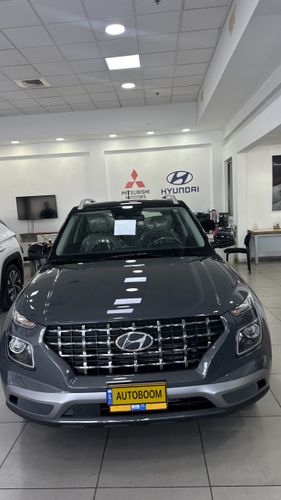
Hyundai Venue, 2024
₪ 130 000
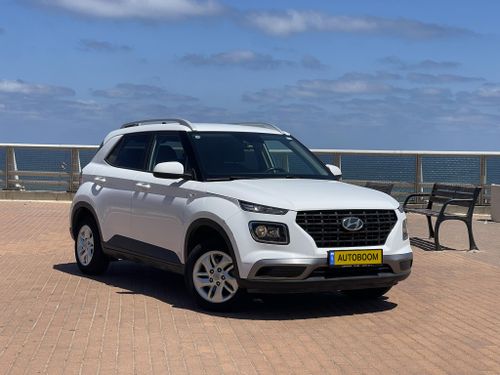
Hyundai Venue, 2021
₪ 69 990
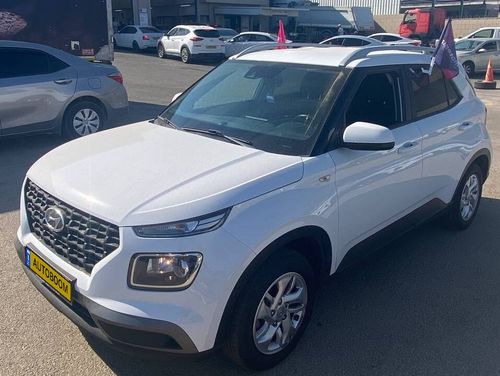
Hyundai Venue, 2022
₪ 84 900
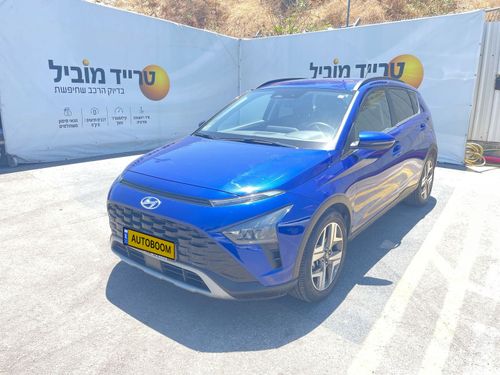
Hyundai Bayon, 2023
₪ 99 525
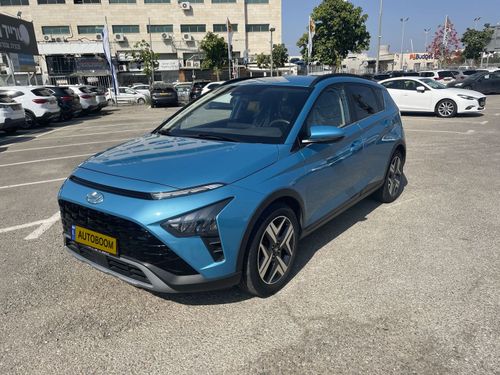
Hyundai Bayon, 2023
₪ 95 555
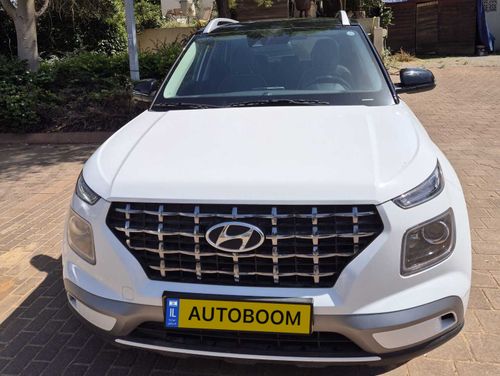
Hyundai Venue, 2021
₪ 93 000

Hyundai Venue, 2021
₪ 89 995

Hyundai Bayon, 2023
₪ 91 455
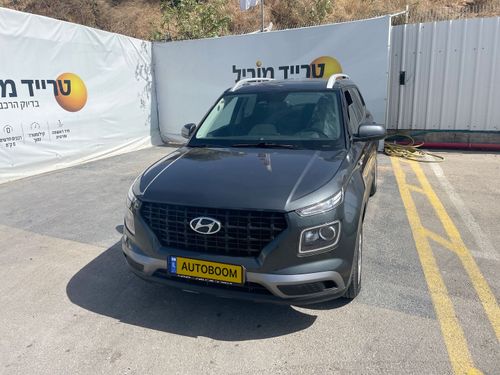
Hyundai Venue, 2023
₪ 99 080

Hyundai Venue, 2025
₪ 129 990

Hyundai Venue, 2021
₪ 84 000
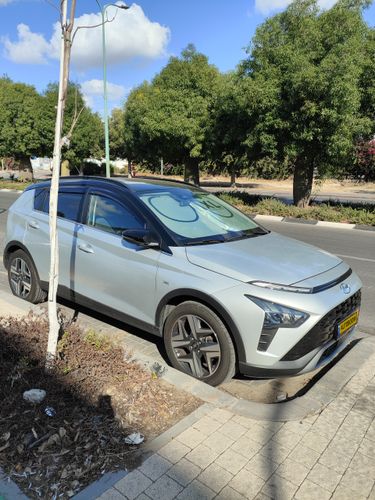
Hyundai Bayon, 2023
₪ 120 000
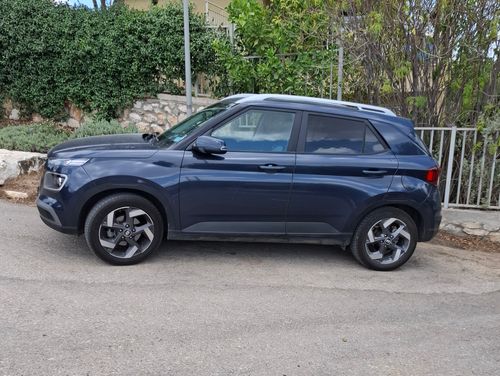
Hyundai Venue, 2021
₪ 80 000

Hyundai Bayon, 2023
₪ 113 000
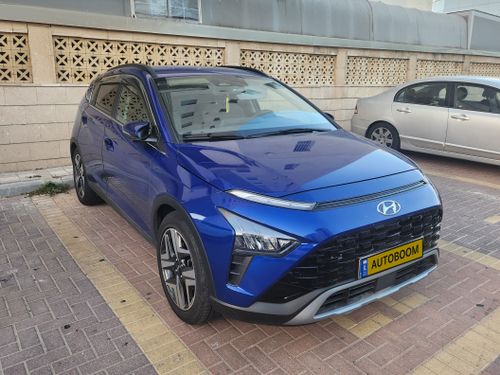
Hyundai Bayon, 2023
₪ 110 000
Hyundai Venue, 2021
₪ 75 955
Hyundai Venue, 2022
₪ 95 285
Hyundai Venue, 2021
₪ 88 150
Compare similar cars Hyundai Bayon and Hyundai Venue
Hyundai Bayon and Hyundai Venue are two popular cars, each with its own unique advantages and features. The choice between Hyundai Bayon and Hyundai Venue depends on the driver's needs and preferences.Hyundai Bayon and Hyundai Venue are two popular cars, each with its own unique advantages and features. The choice between Hyundai Bayon and Hyundai Venue depends on the driver's needs and preferences.
